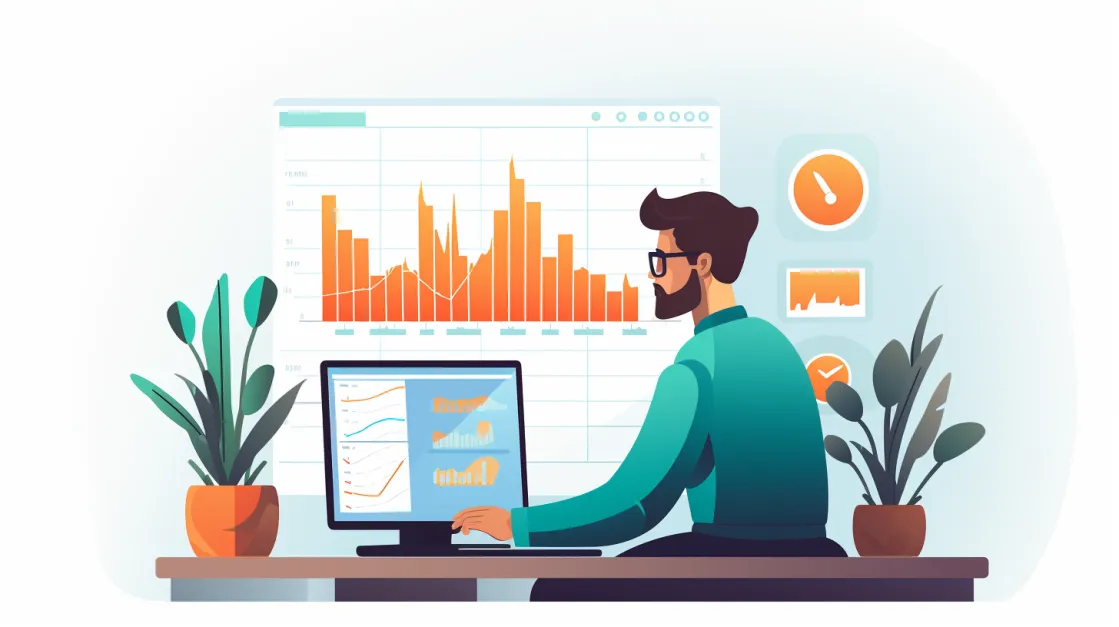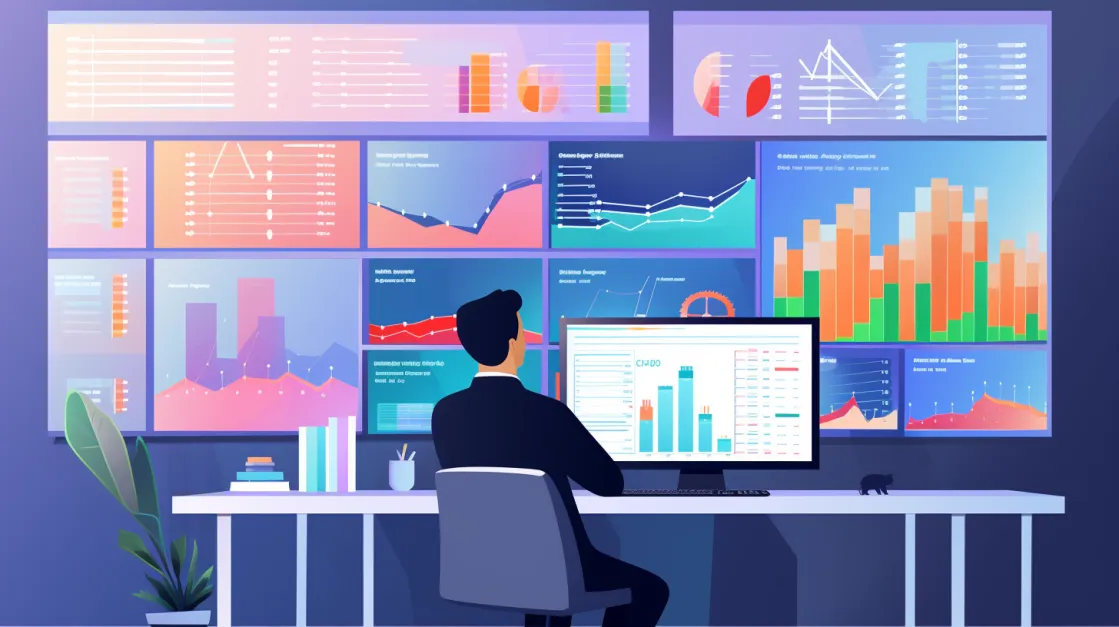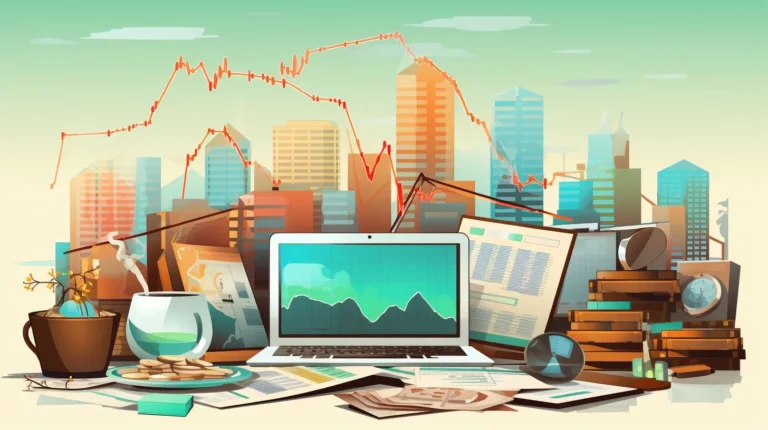Investing in Individual Stocks vs ETFs

Ever found yourself scratching your head, unsure whether to dive into individual stocks or explore the realm of ETFs? Believe me, you’re not alone. I’ve worn those shoes before, meticulously researching each avenue to see which path promised greater returns.
This blog post is all set to guide you on an exploratory trip through the investing landscape; shining a light on the key details about Stocks and ETFs that remain glossed over too often.
So buckle up, it’s time for an enlightening financial expedition!
Key Takeaways
- Stocks are pieces of a single company. You can make money if the firm does well and pays out dividends.
- ETFs, or Exchange – Traded Funds, hold lots of different things like stocks and bonds. This makes them safer because your money is spread out.
- Owning individual stocks can offer both high risks and rewards. Deep research about each firm is required before buying its shares.
- Pick ETFs to spread bets across many firms at once for lower risk. They are simple to manage and you can trade them anytime during market hours just like regular stocks!
- Industries play a big part in choosing between individual stocks or an ETF as investment options. High return but risky sectors may be more suitable for experienced investors while steady sectors make good choices for beginners with less knowledge about market trends.
Understanding the Basics

Let’s dive into the essentials first; a stock represents ownership in a publicly-traded company, while an ETF is a type of investment fund that holds a diversified assortment of investments such as stocks and bonds.
What is a Stock?
A stock is like a piece of a company. When you buy a stock, you own part of the company that issued it. Companies sell stocks to get money they can use to grow or pay off debt. As an owner, you can get money if the company does well and gives out profits as dividends.
You also have voting rights at big meetings where important decisions are made about the company’s future.
What is an ETF?
An ETF is short for Exchange-Traded Fund. It’s kind of like a basket that holds many different things inside it. These can be stocks, bonds or even gold bars. You buy shares in the whole basket, not just one thing in it.
This makes an ETF more balanced than owning only one stock or bond. Let’s say you have money in an ETF that includes high-value stocks and precious metals like gold. If the value of the stocks goes down but the price of gold goes up at the same time, you won’t lose as much money as if you held only those dropping stocks.
You usually get these through your bank account or retirement fund and they are sold on places like the New York Stock Exchange where all sorts of other investments are too! They work pretty much just like buying individual shares where there are lots to choose from!
Key Differences between Stocks and ETFs
Let’s talk about how stocks and ETFs are not the same thing. Here are some key points that can make them seem different:
- You buy stocks from one firm. You get ownership of part of the firm along with it. With ETFs, you buy into many firms at once.
- Stocks give dividends if the firm makes money. Also, you have voting rights in the firm. On the other hand, ETFs hold a lot of other investments like stocks and bonds. These may or may not give out cash as income.
- One big fact is that ETFs come with less risk than stocks because they let you spread your money around more places.
- Stocks can change prices a lot, and fast. ETFs don’t move so fast because their value comes from all their different parts.
- Stocks can be common or preferred types. But all shares of an ETF are alike.
- Buying and selling stocks means going by short-term or long-term capital gains rates for tax payments. With ETFs, most often it costs less because they follow special tax rules.
- When trading, order types for stocks can differ greatly from those for an ETF.
Pros and Cons of Individual Stocks

Investing in individual stocks comes with its own set of pros and cons. In the table below, we’ll delve deeper into what these advantages and disadvantages encompass.
| Pros | Cons |
|---|---|
| Investing in individual stocks can potentially provide higher returns, especially if the company is growing quickly. | Investing in stocks requires significant research and constant monitoring to ensure the investment remains profitable. |
| Individual stocks can provide dividends which can serve as an additional income stream. | Individual stocks carry the risk of losing money if the company performs poorly. |
| If the company is acquired, stocks can be sold at a substantial premium to the current stock price, maximizing profits. | Individual stocks don’t offer the diversification that ETFs do, making them potentially riskier. |
As you can see, while individual stocks hold the potential for high returns and dividends, they also require a lot of effort and come with their own set of risks.
Pros and Cons of ETFs
ETFs, Exchange Traded Funds, are popular investment vehicles known for their diversification and potentially lower risk levels as compared to individual stocks. However, like any investment option, they come with their own set of benefits and drawbacks. Here’s a table that summarizes the key pros and cons of investing in ETFs:
| Pros | Cons |
|---|---|
| 1. Diversification – ETFs are more diversified than individual stocks. This means they spread your investment across a wide range of assets, reducing the risk of losing money if one company doesn’t perform well. | 1. Limited Potential Returns – ETFs spread your investment across multiple assets, which can limit the potential for high returns if a single company within the ETF performs exceptionally well. |
| 2. Less Risky – Due to their diversification, ETFs tend to have a lower risk level than stocks. | 2. Management Fees – Unlike individual stocks, ETFs come with management fees that can eat into your returns over time. |
| 3. Flexibility – ETFs can be bought and traded at any time during market hours, giving you more flexibility than mutual funds. | 3. No Control Over Holdings – When you invest in an ETF, you don’t have control over which individual stocks or assets are included in the fund. You are trusting the fund’s managers to make these decisions. |
| 4. Lower Taxes – ETFs are often more tax-efficient than mutual funds. They are taxed at short-term or long-term capital gains rates, depending on how long you hold them. | 4. Less Potential for Influence – As an ETF investor, you have no voting rights in the companies included in the ETF, so you have less potential influence compared to investing in individual stocks. |
When to Choose Individual Stocks
Picking single stocks brings more risk, but it can lead to high rewards. You need a good knowledge of the market and company updates. It is key that you do deep research about each firm before buying its shares.
Big gains from hot firms could fast-track your money goals.
There are times when investing in single stocks makes sense. If you know a lot about an industry or a company within it, this might work well for you. You’ll have insight into how changes will impact those firms’ valuesbefore others notice.
Warren Buffett says to invest in what you understand; many apply this thought to their stock picks.
When to Consider ETFs

ETFs are a good choice if you want to spread your bets. You get a mix of stocks, bonds and more in one package. This way, even if one company fails, the others can make up for it. It’s less risky than putting all your cash on just one stock.
For first-time investors or those who don’t watch market news daily, ETFs serve well. They need less time to manage since experts handle them. Another plus point is that you can trade ETFs anytime during market hours like stocks.
You should think about taxes too before choosing an investment option. If you plan on selling within a year, go the ETF way! The tax rates are lower for short-term profits from ETF sales than individual stocks!
Finally – cost matters! Many brokers offer commission-free trading of selected ETFs which reduces your spending while investing.
Prefer safety over high gains? Want investments managed by pros without paying much? Or wish to be as flexible as with regular stocks? Then select ETFs!
Comparing Industries for Stock Picking and ETF Investment
Market return and industry impact stocks and ETFs differently. Let’s take utilities, consumer staples or the food sector as examples. They tend to move slow but still offer steady income.
In these cases, buying individual stocks can make more sense than ETFs.
On another hand, other sectors like retail or biotech are very volatile. The risk is high when picking single stocks in them because a company may fail overnight! Here, the safer bet is to pick an ETF from these industries instead of a single stock.
Remember this rule: higher risks means higher returns if you win but nasty losses if things go south!
The last thing I want to touch on here are sectors that aren’t easy to master without lots of specific insight and data analysis skills – think mining or some special tech groups out there offering financial services for example!
For such tough nuts to crack it makes even more sense just let professionals handle your money wisely by choosing an ETF over an individual security from these super complex sectors .
ETFs vs Stocks: A Comprehensive Comparison
Let’s dive in and undertake a comprehensive comparison between stocks and ETFs, touching on their pros and cons to give you the full picture of these investment options.
Advantages of Investing in Stocks
Let’s talk about why stocks are good to put your money in. Stocks can have high returns if you choose the right one. They give you part ownership in a company, which means when the company does well, you will too. If the company pays out dividends, you will get a cut of the profits. Stock picking gives you power over where your money goes and what it invests in. While all-in-one ETFs might be easy, there is thrill and challenge in seeking market-beating returns with individual stocks. Stocks also tend to have voting privileges which mean you have a voice on big issues that arise within the company. Some investors find this perk very appealing!
Disadvantages of Investing in Stocks
It’s not all roses when it comes to buying individual stocks. There are a few issues to consider:
- It needs time and effort. You have to keep up with market news and company changes.
- They can be risky. If one stock doesn’t do well, it can damage your whole investment.
- Stocks are more uncertain than ETFs. The price of a stock can swing wildly from day to day.
- Buying stocks may cost you money in fees and taxes.
- Single stocks lack diversity. One stock only gives you ownership in one company.
- Stocks may not always make money for you over the short term.
- Keeping track of many stocks is hard work.
- Not all stocks pay dividends, which means no regular income from them.
- Some businesses might fail or do poorly, hurting the worth of your shares.
- If the company does poorly, so does your investment.
Advantages of Investing in ETFs
Investing in ETFs has several strong points. Firstly, ETFs bring together many types of investments. This gives you many options to pick from when buying. Secondly, ETFs spread out the risks more than single stocks do. This can put you at ease if a single company does badly. Another good point about ETFs is that they come with less work for you. You don’t have to dig deep into papers or keep a close check on each company like you would with normal stocks. Lastly, though this might seem small, being able to buy and sell ETFs just like stocks is a big plus. It lets you flex your money muscles when and how you want too.
- Many choices available.
- Lower risk level compared to individual stocks.
- Less effort required in research and monitoring.
- Opportunity to buy and sell them like regular shares.
- Gives investors exposure to different sectors and industries with one purchase.
- Offers some level of income through dividends.
- Allows tax-efficient fund structure due to its unique creation-redemption process.
- Consistent returns aligning with specific index performance.
Disadvantages of Investing in ETFs
Now, let’s talk about some downsides of investing in ETFs.
- These funds have their own fees. The fees are for managing the fund. They can lower how much money you get back.
- You may not make as much money on your investment in an ETF even if it was a good year for stocks overall.
- An ETF buys a group of stocks and not just one. This means that one great stock won’t help you as much.
- Lastly, with ETFs, you don’t get to choose which stocks you invest in.
What Are the Benefits of Long-Term Investing Strategies Compared to Short-Term Strategies?
Short-term and long-term investing strategies offer distinct benefits. For short-term strategies, investors can quickly capitalize on market fluctuations, potentially earning profits in a short period. Conversely, long-term strategies foster wealth accumulation by leveraging compounding returns over a extended period. They provide stability, reduced stress, and mitigate the impact of short-term market volatility, allowing investors to benefit from an extended time horizon.
Stocks or ETFs – Which is Better for You?
Weighing the benefits and drawbacks of stocks and ETFs can seem like a balancing act, but understanding your own investing style, financial goals and risk tolerance will guide you towards making this critical decision.
Read on as we journey deeper into which investment route could unlatch rewarding opportunities for you in the vibrant world of stock markets.
When Stocks are Better

You can earn a lot of money from stocks if you choose the right ones. Buying stock means buying a piece of a company. If that company takes off, so does your investment! People who like to follow companies and learn about them might enjoy owning stocks.
You’ll see more gains if you invest in one winning stock than you would with an ETF spread across many different stocks. A single good pick can be super rewarding! Also, some people like getting dividends – that’s cash payouts based on how well the company is doing.
So even when the market goes down, owning dividend-paying stocks can put some money back into your pocket.
When ETFs are Better
ETFs are a top pick if you want less risk. Why’s that? They hold many stocks or bonds. This mix makes them safer than single stocks. You’ll also like ETFs for their low “buy-in”. Just enough cash to buy one share gets you started! And no sweat if keeping up with market news isn’t your idea of fun.
ETFs need less research and watching over time than individual stocks do.
Conclusion
It’s up to you. ETFs and stocks are different paths in one trip: making money. Guessing about a single firm could get you big wins or big losses with stocks. Sticking with a group of firms using an ETF gives slow and steady winnings, like a tortoise! You decide who to be: the hare or the tortoise?.
FAQs
1. What are some differences between investing in individual stocks and ETFs?
Buying personal stocks means you own a part of one firm, while exchange-traded funds (ETFs) let you put money into many firms at once. This helps to diversify your holdings and lower the risk.
2. Can buying individual stocks give more gains than ETFs?
Yes, if an investor picks the right stock like those in utilities or biotech industry, it can give more alpha or gain than an ETF. Yet, picking the right stock needs good knowledge of company insight.
3. Is portfolio allocation easier with ETFs or individual stocks?
With ETFs balance works easier because they already hold many different types of assets like common shares, preferred shares or bonds from multiple sectors such as technology groups or mining sector.
4.What should I consider when choosing between owning stocks and investing in ETFs?
Consider factors such as price volatility, liquidity and tax exposure by using financial calculators for investment advice based on your long-term strategy goals.
5. How does risk factor play out between these two investment options?
Investing in one type of asset increases risk due its exposure to market sentiment fluctuations but having a diverse bunch of these investments via an EFT could offer risk reduction with better dispersion returns over time.
6.Is there any cost difference to invest within Stocks Vs Efts?
Often Individual securities might involve higher brokerage commissions where Exchange traded Funds follow a passive investing strategy ensuring lower expense ratios making them more affordable options for investors regardless their financial circumstance .






